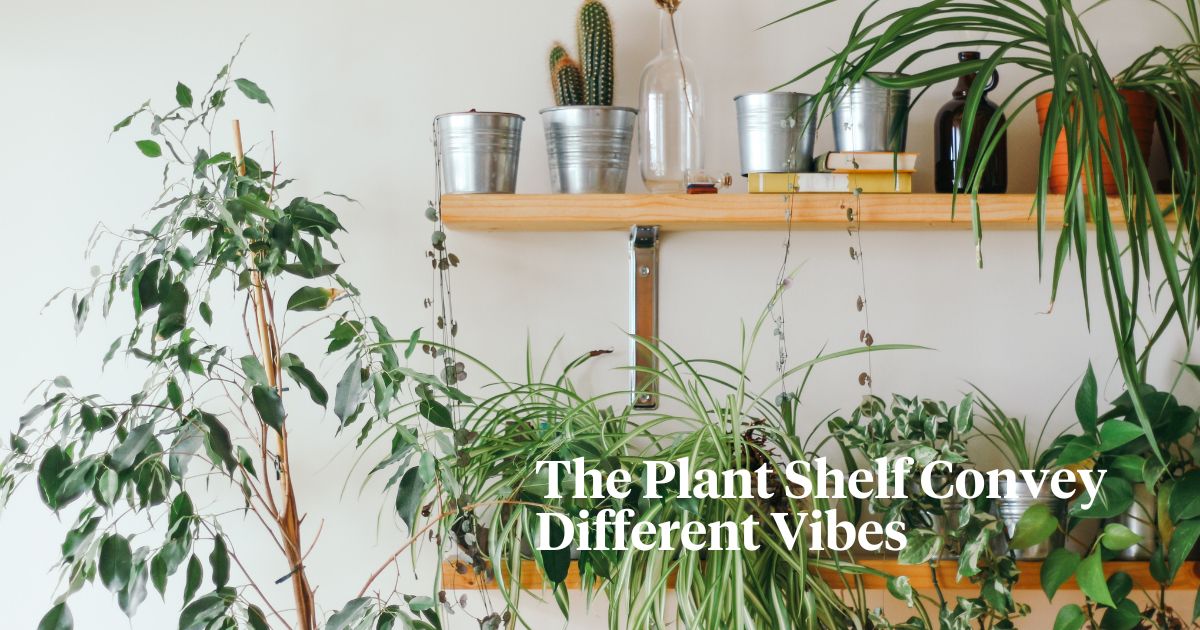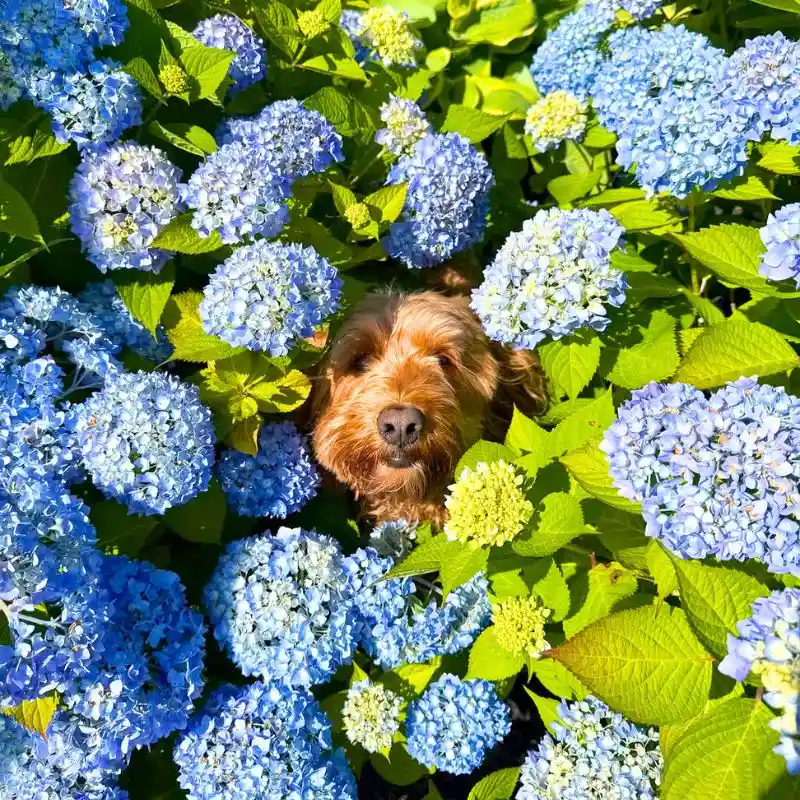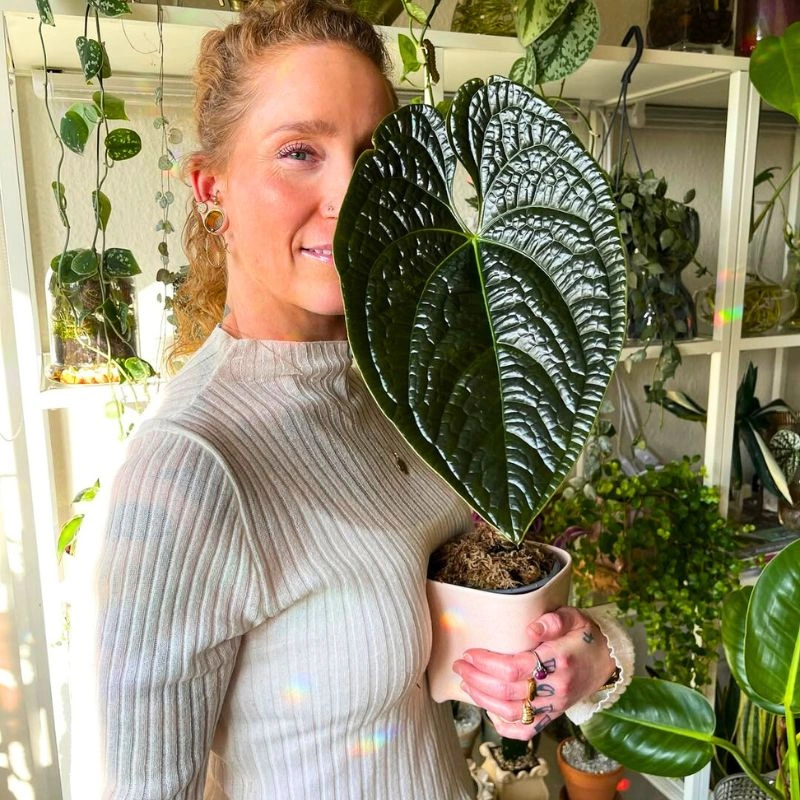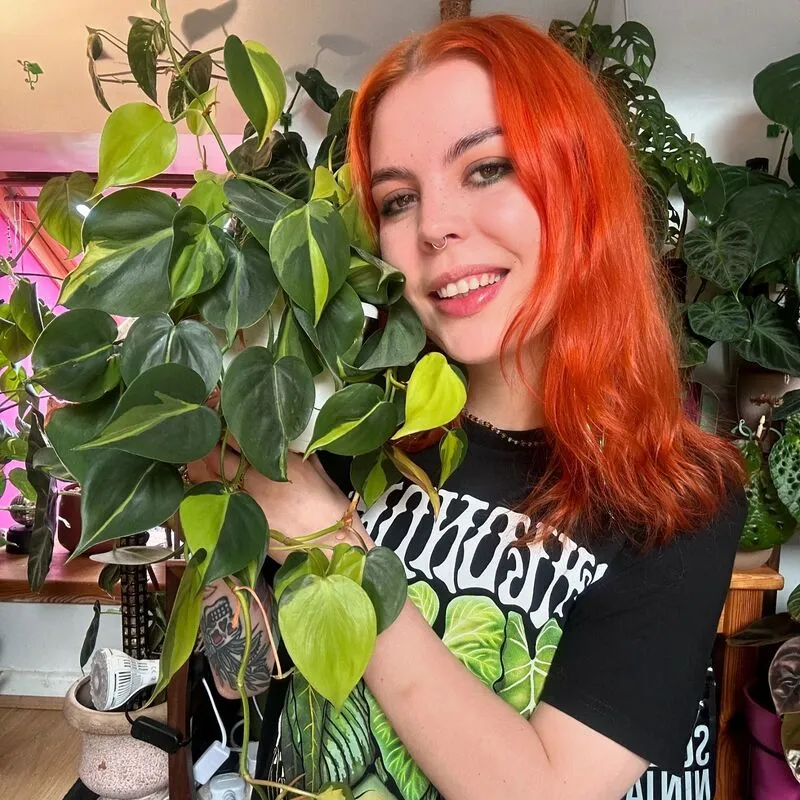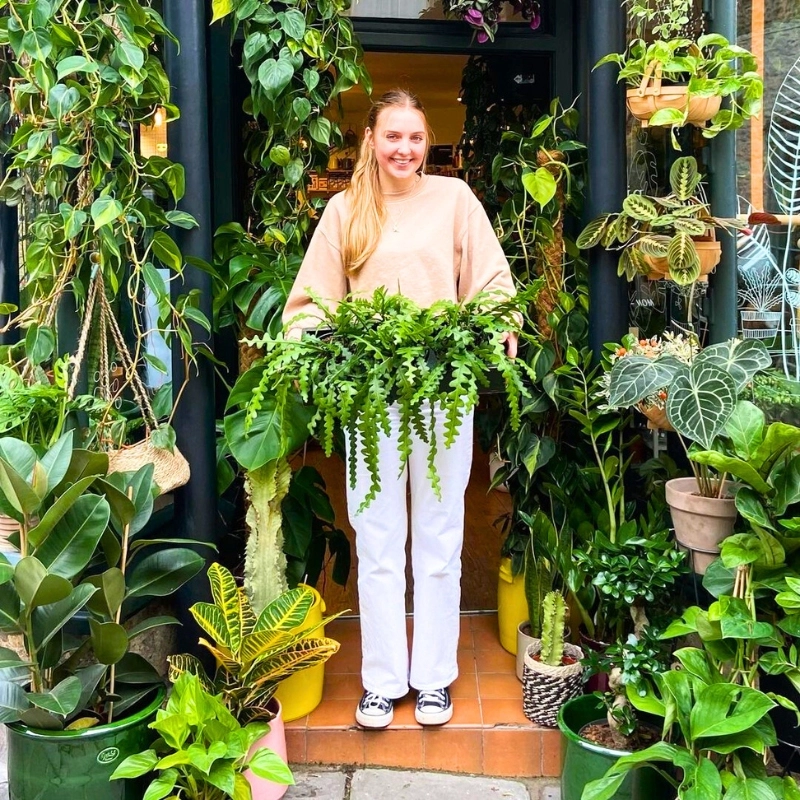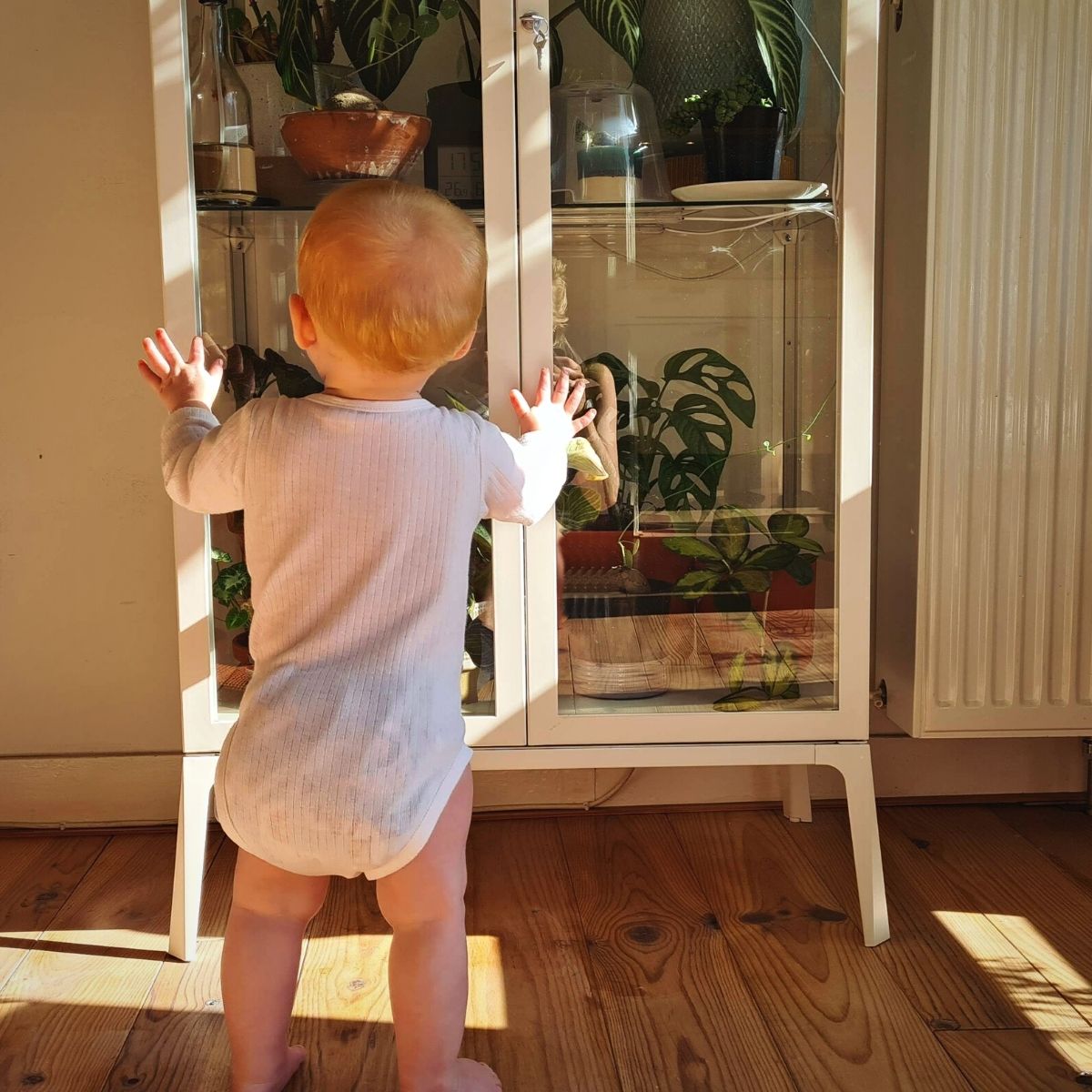If you love plants, you certainly understand how important displaying your collection beautifully and stylishly is. Plant shelves are an excellent way of showing off your indoor garden. Besides being functional platforms for indoor plants, shelves offer a unique canvas for artistic expression.
Choosing shelf design and aesthetics helps transform your otherwise mundane corner into a stylish sanctuary. However, creating a cohesive and visually appealing plant shelf can prove challenging. Fortunately, you don’t have to be a pro to make a plant shelf like this one. Use the following tips to improve the appearance of your plant shelves.
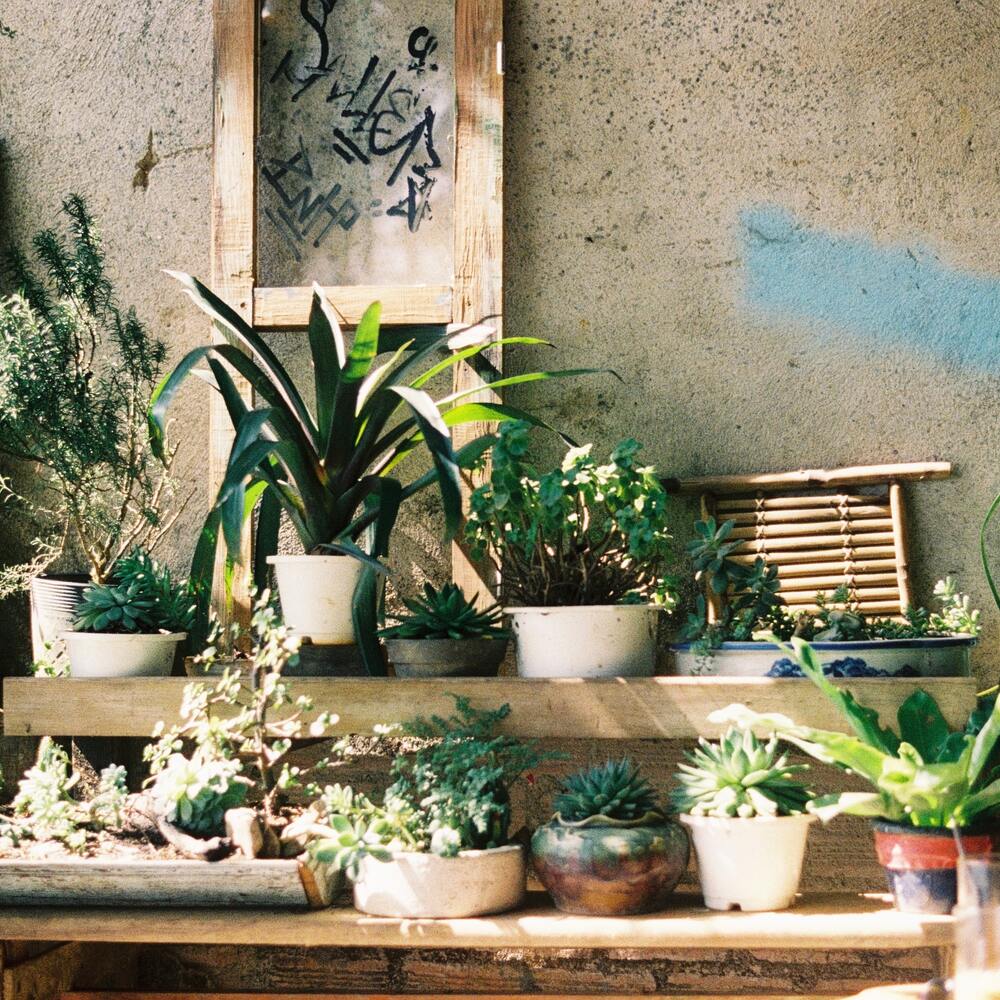
Choose the Right Shelves
The first step to creating a beautiful and stylish plant shelf is ensuring you choose the right shelf. Your choice of shelf affects the overall aesthetics of your indoor space and determines the safety and functionality of your plants. That said, choosing the right shelf comes down to many factors.
The first thing is the shelf style and material. The design style and material of the plant shelf convey different vibes. For instance, metal shelves give off a modern and industrial look. Glass shelves give a minimalist vibe, while wooden shelves add warmth and a rustic touch to your room.
Choosing the right shelf also requires considering the weight of your plants, planters, and other decorative items. You should consider a heavier shelf if you have a substantial plant collection. Similarly, you should choose between bracketed and floating shelves. Floating shelves provide a clean and contemporary look, while bracketed plant shelves offer a traditional appearance.
Consider the Sizing
Playing with the shelf’s size is probably the easiest design element that creates drama and visual interest. You can use its sizing to create focal points in the room or highlight your favorite plant in the collection. Use the following sizing tricks to improve plant shelf appearance:
- Place small plants in front of large plants to break the solid color of large pots and prevent small plants from being covered by large plants.
- Place trailing plants in front of upright-growing plants to separate leaves.
- Use small plants on small shelves to maintain scale.
- If your shelves are large and have enough space, combine plants of different sizes, ranging from small to large, while considering their growing habits.
- Add new shapes and utilize the space behind the shelf for vases or mounted planters.
- If you have a floor-standing shelf, use the final shelf to your advantage. For instance, you can place large statement plants to the side or in front of the shelf.
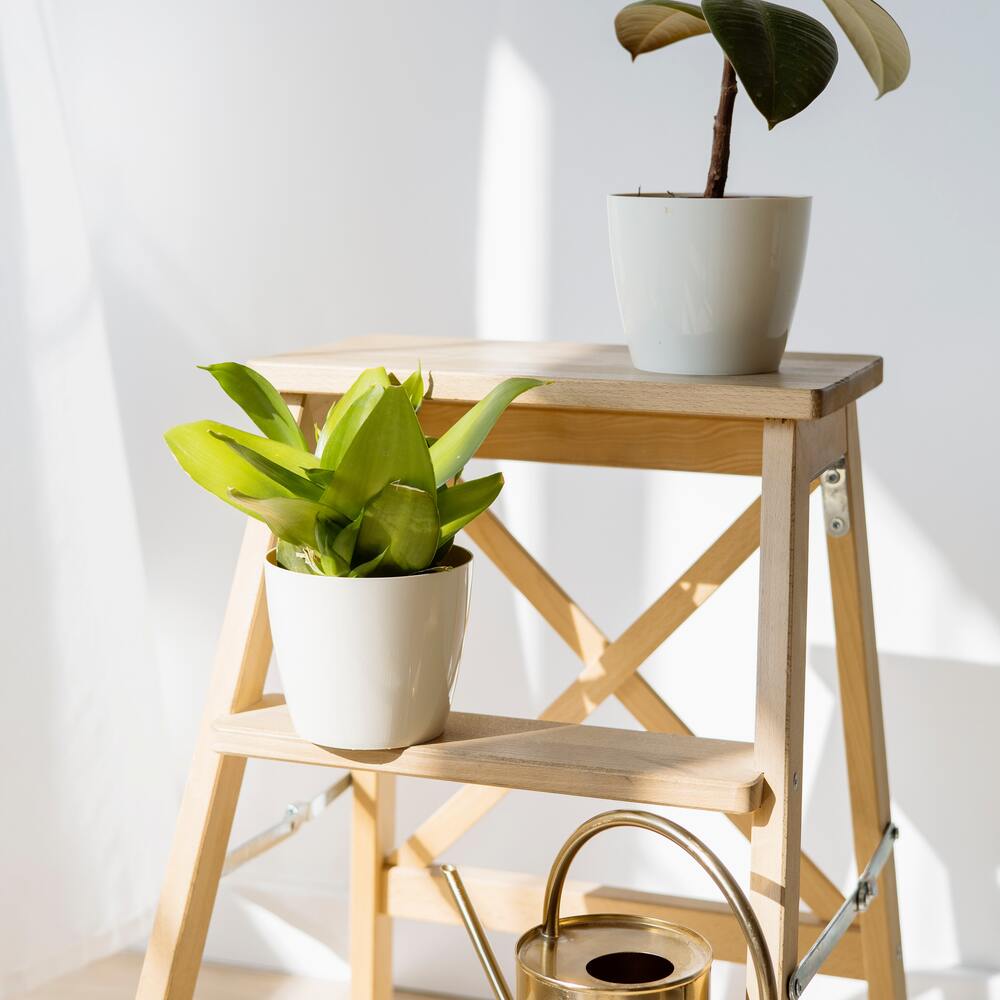
Group Plants Thoughtfully
You should also group your indoor plants thoughtfully to create an attractive and visually appealing shelf. Carefully arranging your plants helps create a balanced and harmonious look that boosts the overall aesthetics of your room. However, grouping plants requires that you use specific criteria.
You can begin by grouping plants with similar care requirements together. Doing this ensures you provide appropriate watering and lighting to all plants without compromising their health. For instance, place succulents with succulents and tropical plants together.
Grouping should also help achieve visual cohesion. You can achieve a cohesive and visually pleasing arrangement by grouping plants based on their height, size, and shape. While at it, consider the color and contrast of each plant. Think about how the foliage will complement or contrast each other. Combining plants with different colors creates an eye-catching focal point.
Add a Statement Piece
Adding a statement piece to your plant collection is an excellent way to improve interest and contrast. Ideally, your statement piece should be the largest plant. This could be the largest trailing Pothos philodendron in Rojo Congo. The statement piece could also be rare and unusually eye-catching, like the Philodendron Tortum.
Statement pieces are perfect if you don’t have a lot of plants on your shelf. They command attention without the interference of detractors. However, if you have a jungled shelf, move the statement piece aside, probably beside the shelf, so it stands out.
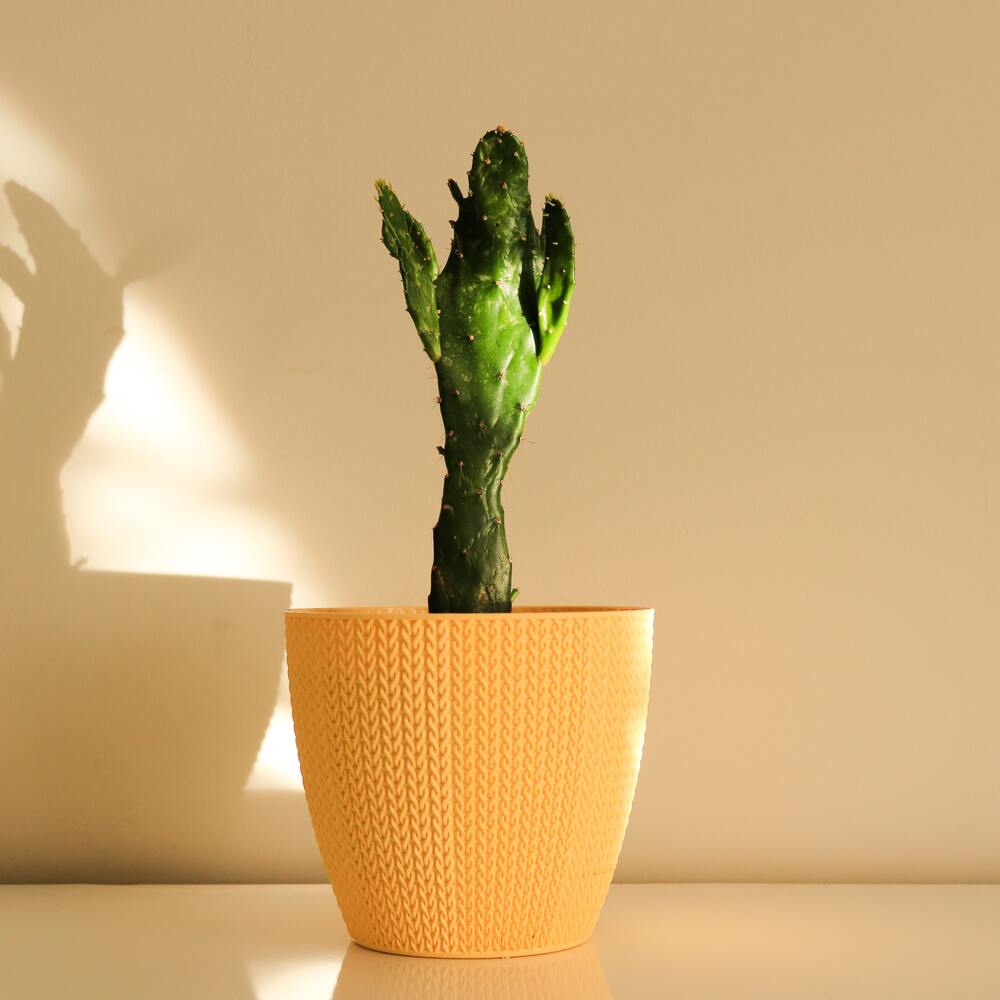
Choose the Right Color
Surprisingly, plants aren’t selective with interior décor. However, plants have different shades of green. For instance, some indoor plants have leaves with a blue-green tone, while warmer greens have a yellow-green. With this concept, you should consider your home’s interior décor before bringing indoor plants.
Nonetheless, if you’ve already purchased your plants or have many plants, try placing them adjacent so that leaves contrast each other in size, color, and pattern. You can have two plain green plants beside variegated plants or break the green pattern with a plant with dotted or striped leaves.
While most plants are green and green color is the epitome of a jungle-like indoor appearance, you shouldn’t shy away from collecting plants with interesting foliage. Plants with pink, orange, red, or black foliage and interesting spots, speckles, or stripes are great additions to your home. Include a few of these plants to create a focal point on your shelf.
Pick Complementing Planters
The color, size, and shape of your planter also influence the appearance of your shelves. You should consider the age and material of planters when designing your shelf assemblage. You should choose matching pots for your home office or commercial spaces. They bring forth a calm and cohesive appearance.
However, you can play with different colors and textures for other parts of your home or coffee shops. You can have different colored planters on the same shelf, in the same or different rooms. Most people prefer working with complementary colors for their planters. Colors that contrast perfectly, like yellow and blue, pink and green, or red and green are perfect pairing options. You can also pair colors with neutral colors or in the same color group, like shades of cream, peaches, or blue.
Conclusion
Indoor plants are different, and finding the ideal conditions for all to bring out their beauty can prove daunting. Unfortunately, green and flowering plants often suffer from the same problems once relocated indoors. They don’t get enough display and can’t thrive in crowded environments. While placing an orchid or a violet on your dressing table is no big deal, you should consider a plant shelf if you have more than three plants. Use the tips mentioned above to make your shelf beautiful and stylish.

